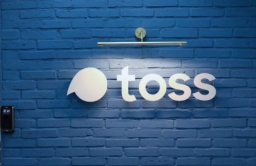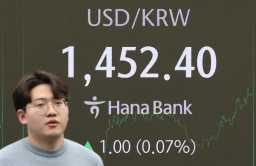-
KOSPI 2577.27 -2.21 -0.09%
-
KOSDAQ 722.52 -7.07 -0.97%
-
KOSPI200 341.49 +0.02 +0.01%
-
USD/KRW 1396 -2.00 0.14%
Korea seeks to ease fintech ownership, crypto regulations
Regulations
Korea seeks to ease fintech ownership, crypto regulations
The ban on local investors’ trading of spot-bitcoin exchange traded funds will remain in place
By
Jan 09, 2025 (Gmt+09:00)
2
Min read
News+

South Korea’s top financial regulator has proposed loosening restrictions on financial holding companies’ ownership of fintech platforms from the current 5% to 15% in the first such shift since introducing the ownership limit in 2000.
The Financial Services Commission (FSC) is also moving to allow companies and non-corporate organizations to trade cryptocurrencies at home, starting as early as the first half of this year.
On Wednesday, the FSC unveiled a package of such policy initiatives for 2025.
RULES OVER FINTECH OPERATORS
Under the current law, financial holding firms are restricted to a maximum 5% stake in a fintech platform unless it is its subsidiary of which it controls more than 50%.
“(A loosening in their ownership limits) will meet the needs of both fintech companies seeking to attract investment, while keeping management rights and financial holding firms who want to collaborate with fintech companies through an appropriate level of investment,” said an FSC official.
For fintech units classified as subsidiaries of holding firms, the regulator seeks to allow them to control other financial services firms like robot advisers that provide customized financial advice and investment services online.

CRYPTOCURRENCY TRADE
Investors in the domestic digital coin market are required to open Korean won-denominated accounts under their real name at a local bank.
The rules virtually blocked institutions' digital currency trading at home because local banks were reluctant to open corporate accounts linked to crypto investments for fear of breaking anti-money laundering guidelines.
A relaxation in the rules, to be introduced in phases, will enable companies, university foundations and municipal governments to convert digital money into physical cash in the country.
Meanwhile, the FSC said it will continue to ban local investors’ trading of spot-bitcoin exchange traded funds, citing a lack of investor protection systems.
In 2024, South Korea enacted legislation on virtual assets to bring cryptocurrency markets under regulatory control for investor protection after a series of alleged cryptocurrency fraud cases in recent years.
It is now drawing up follow-up regulatory steps concerning digital asset issuance and circulation.
Write to Hyun-Woo Kang at hkang@hankyung.com
Yeonhee Kim edited this article.
More To Read
-
 Upcoming IPOsRosy outlook for South Korean fintech IPOs in 2025
Upcoming IPOsRosy outlook for South Korean fintech IPOs in 2025Dec 30, 2024 (Gmt+09:00)
-
 CryptocurrenciesKoreans flock to cryptos amid Trump-fueled crypto craze
CryptocurrenciesKoreans flock to cryptos amid Trump-fueled crypto crazeDec 26, 2024 (Gmt+09:00)
-
 Foreign exchangeKorea to relax FX rules by December to boost dollar selling
Foreign exchangeKorea to relax FX rules by December to boost dollar sellingDec 23, 2024 (Gmt+09:00)
-
 CryptocurrenciesKorea’s crypto exchanges ride bitcoin rally on Trump optimism
CryptocurrenciesKorea’s crypto exchanges ride bitcoin rally on Trump optimismNov 14, 2024 (Gmt+09:00)
-
 The KED ViewYes to cannabis but no to bitcoin?
The KED ViewYes to cannabis but no to bitcoin?Jan 16, 2024 (Gmt+09:00)
-
 CryptocurrenciesForeign-listed bitcoin ETF trading suspended in S.Korea
CryptocurrenciesForeign-listed bitcoin ETF trading suspended in S.KoreaJan 12, 2024 (Gmt+09:00)
-
Dec 20, 2023 (Gmt+09:00)
-
 CryptocurrenciesS.Korean crypto fugitive Do Kwon arrested in Montenegro
CryptocurrenciesS.Korean crypto fugitive Do Kwon arrested in MontenegroMar 24, 2023 (Gmt+09:00)
-
 CryptocurrenciesBinance acquires majority stake in S.Korea's crypto exchange Gopax
CryptocurrenciesBinance acquires majority stake in S.Korea's crypto exchange GopaxFeb 09, 2023 (Gmt+09:00)
-
 CryptocurrenciesKorean crypto buyers show higher risk appetite than global peers
CryptocurrenciesKorean crypto buyers show higher risk appetite than global peersSep 27, 2022 (Gmt+09:00)
-
Aug 17, 2022 (Gmt+09:00)




